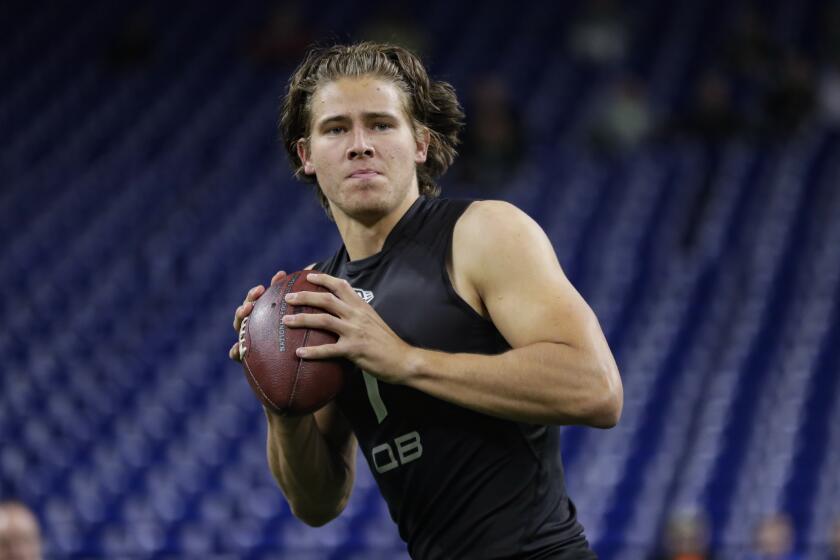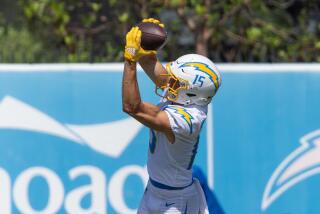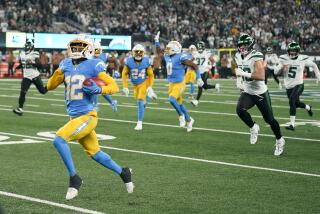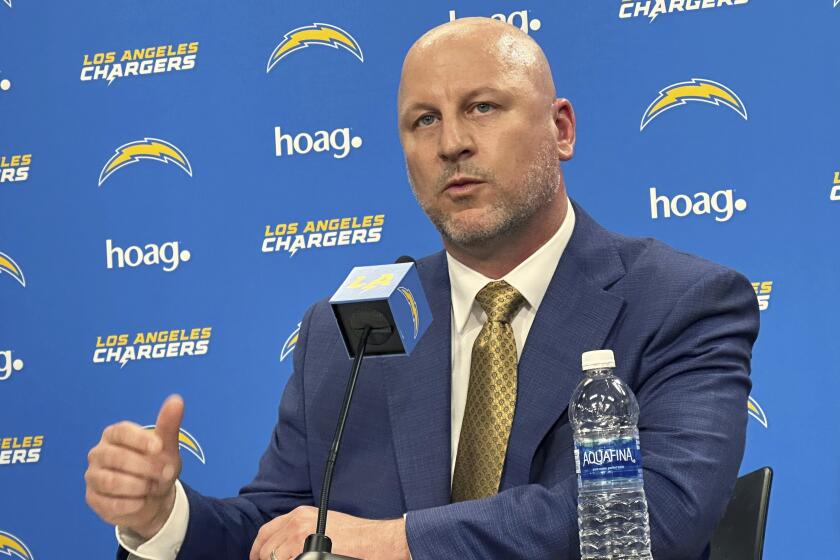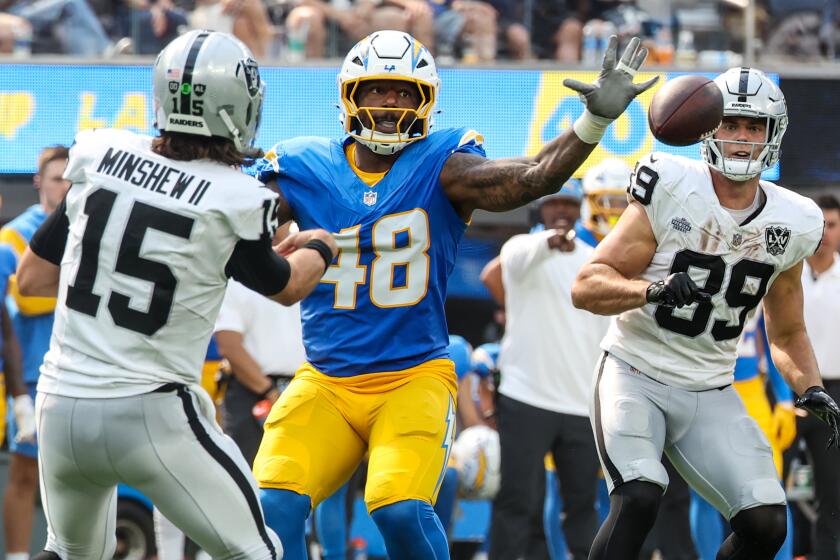Chargers hope Joe Reed’s versatility will make him a multi-purpose threat
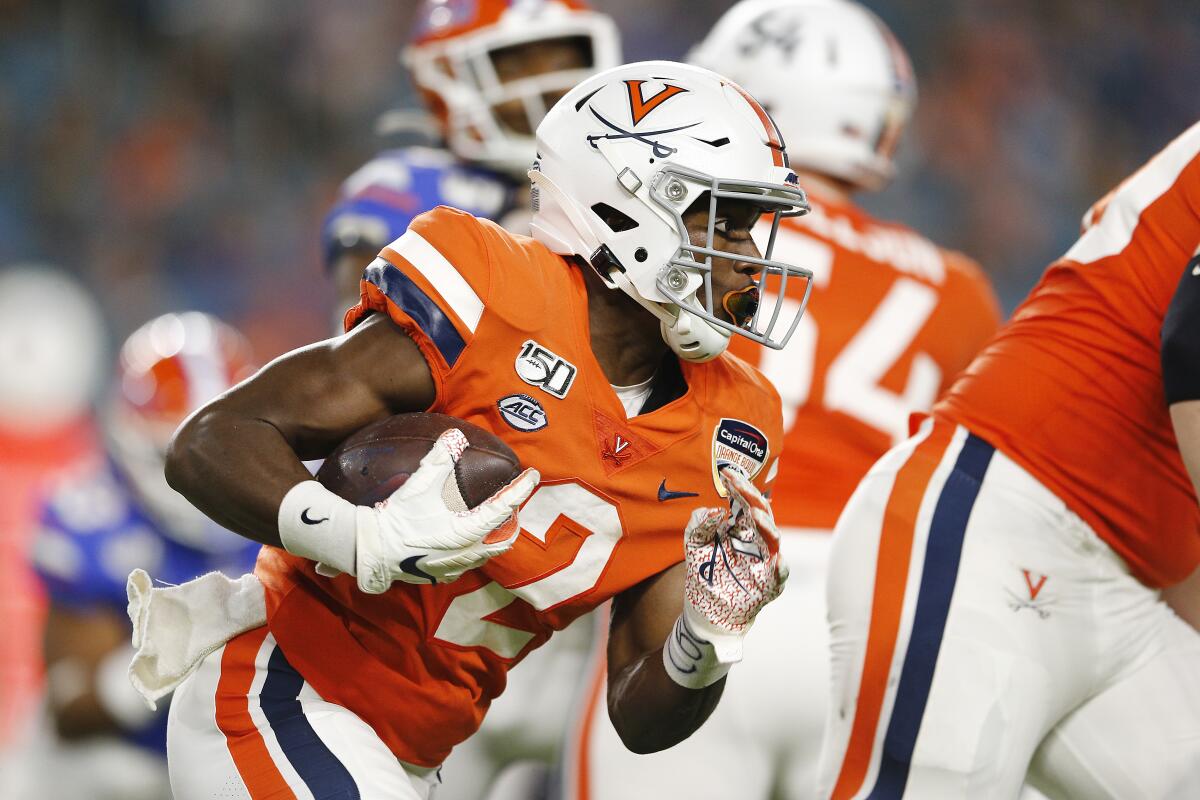
His old head coach at Virginia, Bronco Mendenhall, called him “almost Swiss army knife-ish.”
His new head coach with the Chargers, Anthony Lynn, went with “a multi-purpose threat.”
And one of his new teammates, safety Derwin James, chose a “chess piece on offense.”
Given all the different ways Joe Reed is described and how each of those suggests the same basic quality, it’s hard to imagine him not carving out a spot in the 2020 Chargers’ attack.
“He can do a lot of things for us,” general manager Tom Telesco said. “So we’ll get him in here and see where he fits.”
Chargers Mike Pouncey talks about his return from a neck injury that nearly ended his career.
For now, Reed remains in Virginia, living in his off-campus apartment with a few former college teammates, and working out in a makeshift gym they’ve cobbled together in a nearby parking garage.
At some point, he’ll join the NFL team that last month drafted him in the fifth round — at No. 151 overall — and begin to display the versatility he promises as a receiver, returner and runner.
Last season, Reed caught 77 passes for 679 yards and seven touchdowns, his quickness providing the necessary separation to be a weapon in the Cavaliers’ short and intermediate passing games.
He also led college football in kickoff return average — 33.2 yards — and won the Jet Award as the nation’s top return specialist. Past recipients of the honor include Adoree’ Jackson, Christian McCaffrey and Tyler Lockett.
While acknowledging that kickoff returns have been deemphasized in today’s NFL, Telesco said just the presence of a player with Reed’s skills will force opponents to try to sail the ball into the end zone.
Having produced a 4.47-second 40-yard dash at the NFL combine, Reed explained that running back kicks successfully takes more than just the obvious traits of speed and elusiveness.
“It comes down to being fearless, trusting your instincts, not tiptoeing around,” he said. “Just break tackles and go. Vision plays a huge role. It’s kind of like being able to know what’s coming at you before it actually happens.”
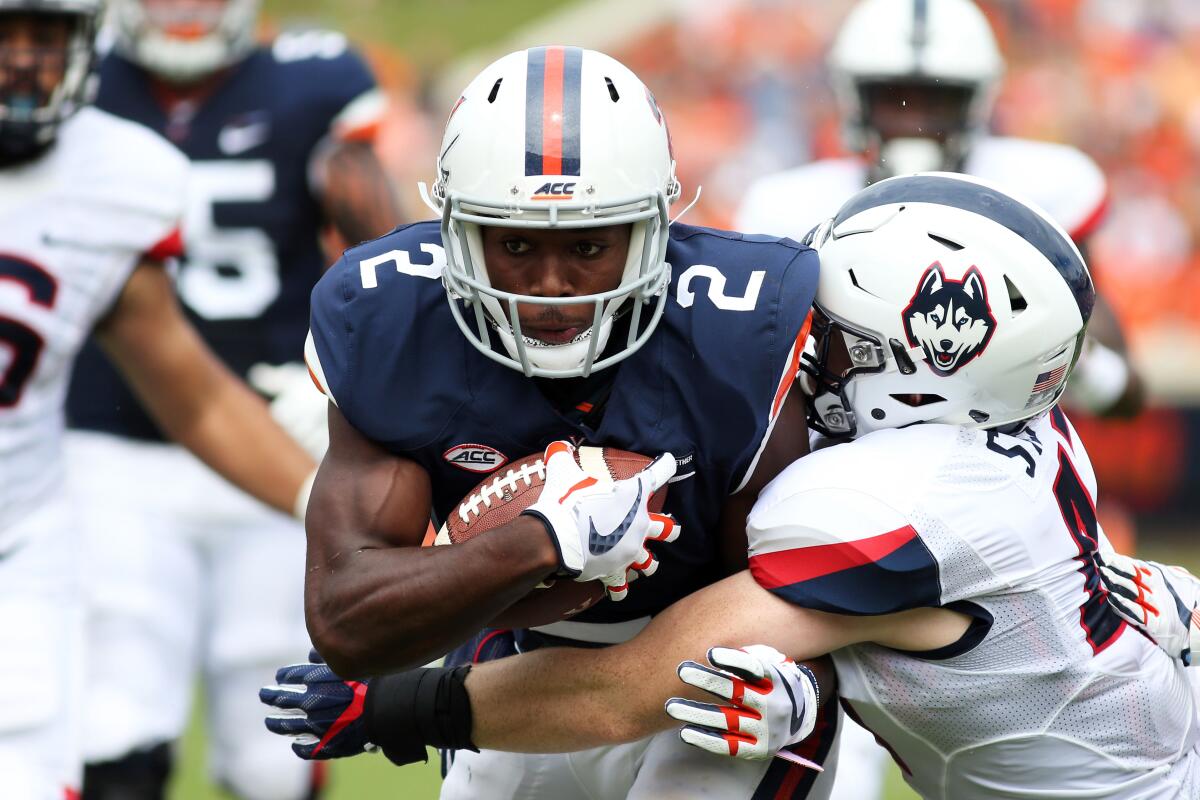
Reed returned five kickoffs for touchdowns in college. No Charger has scored on a kickoff return since Michael Spurlock on Dec. 30, 2012.
At 6 feet and 224 pounds, Reed offers a potentially daunting combination of size and speed, attributes that convinced some teams to consider drafting him as a running back.
Though he carried only 34 times for 172 yards in college, Reed ran for more than 2,000 yards and scored 38 touchdowns as a high school senior in Virginia playing wildcat quarterback.
He’s two inches taller and 25 pounds heavier than Chargers running back Austin Ekeler. Though he’s four inches shorter than Mike Williams, Reed has five pounds on the 1,000-yard receiver.
With restrictions of the COVID-19 pandemic, the Chargers are tasked with preparing prized rookie quarterback Justin Herbert virtually.
“Being able to use my size and my speed … creating tons of mismatches,” Reed said when asked what he’ll give the Chargers. “Going forward, I’ll work on being more fluid, playing faster and just getting ready to play with the big guys.”
Moving to Southern California will represent quite a departure for Reed, who said he can’t recall traveling west of Louisiana.
He grew up in Charlotte Court House, Va., a roughly 500-person town that occupies four square miles and includes a courthouse designed by Thomas Jefferson.
“I wouldn’t trade it for anything,” Reed said. “Really down home, the whole hunting and fishing thing. That’s how I came up. Most of the time we were outside doing something.
“Other than hunting and fishing, just play ball. There really isn’t much to do other than make your own fun. Yeah, this will be a little different for me.”
More to Read
Go beyond the scoreboard
Get the latest on L.A.'s teams in the daily Sports Report newsletter.
You may occasionally receive promotional content from the Los Angeles Times.


